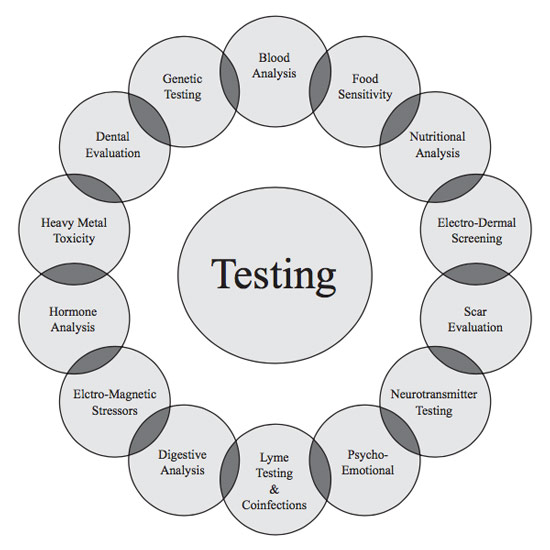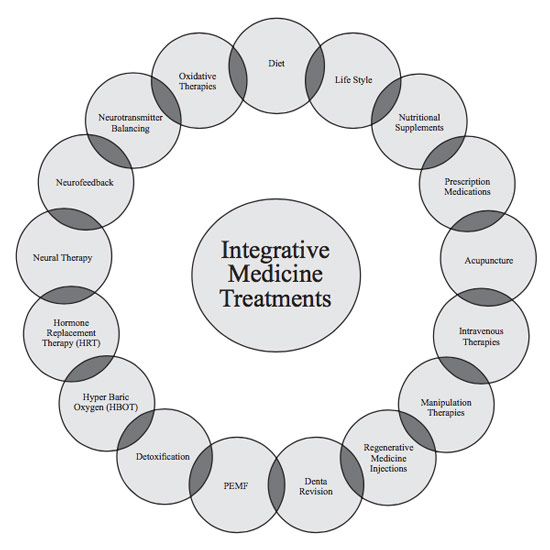ANATOMY OF A CHRONIC ILLNESS
BY FRED G. ARNOLD, NMD
According to the U.S. National center for Health Statistics, a chronic disease, is one lasting 3 months or more. The frequency of Chronic diseases is staggering: Eighty-eight percent of Americans over 65 years of age have at least one chronic health condition and by 2020, a projected 81 million Americans will have multiple chronic conditions. As a global problem, 50% of the word lives with chronic disease. According to the Centers for Disease Control, chronic disease is the leading cause of death and disability in the United States, accounting for 70% of all deaths.
Chronic diseases generally cannot be prevented by vaccines or cured by medication, nor do they just disappear. Some of the major health damaging contributors that lead to chronic illness include tobacco use, lack of physical activity, and poor eating habits.
Chronic diseases tend to become more common with age. The leading chronic diseases in developed countries include (in alphabetical order) arthritis, cardiovascular disease such as heart attacks and strokes, cancer such as breast and colon cancer, diabetes, epilepsy and seizures, obesity, and oral health problems. The good news is that through effective behavior change efforts, appropriate medical management, and systematic monitoring to identifying new problems, chronic diseases and their consequences can often be prevented or managed effectively.
Conventional Medicine Approach
The conventional medicine approach to treat a chronic illness is based on evidence based medicine. Evidence- based medicine emphasizes to the greatest extent possible, decisions and policies based on evidence, not just the beliefs of the practitioners. The doctor’s opinion, whenever possible, is supplemented with all available knowledge from the scientific literature so the best practice of medicine can be determined and applied.
A large part of treatment is to prescribe prescription medications. There is no doubt that prescription medications prolong and improve the quality of life for someone who has a chronic illness.
Integrative Medicine Approach
Another way to approach a chronic illness is through an Integrative Medicine approach. According to Dr. Andrew Weil, M.D. “Integrative Medicine is the intelligent combination of both alternative and conventional medicine...”.
Alternative medicine focuses on health and healing and away from disease and disease symptom management. It emphasizes the whole person, including all aspects of lifestyle. It takes into account more than just physical bodies and takes into account our minds and spirits.
Alternative medicine consists of a wide range of health care practices. Examples include new alternative medicine practices such as homeopathy, naturopathy, chiropractic, energy medicine, acupuncture, Ayurvedic medicine, mind-body medicine, herbal medicine, and body manipulation.
Utilizing an Integrative Approach
Utilizing an Integrative approach with a chronic illness would attempt to use the safe practices of both worlds for the healing benefit of the patient.
Some of the more common testing used in an integrative approach would include the following:
Serum Testing: proper serum or blood work should always be ordered with the proper tests specific to each person’s specific chronic illness. CMP, CBC, complete thyroid, Vitamin D, C-CRP are just a few of the basic tests to consider with any chronic illness.
Nutritional Analysis: this form of testing can determine if specific nutrients are being properly utilized by our bodies cells. This form of specialized testing can determine if the vitamins and minerals in our foods are actually being taken into our cells for proper health.
Food Sensitivity Testing: the impact of our food on our health cannot be underestimated and is critical to overcoming any chronic illness. Each of our bodies react differently to the different foods we eat and possible effects can include headaches, joint pain, inflammation, digestive problems, migraines, obesity and many more conditions.
Diagnostic Testing: it is important to perform proper diagnostic testing when evaluating a chronic illness. Some of the more common diagnostic tests includes, serum (blood) work, x-rays, MRI, ultrasound, etc.
Functional Medicine Testing: is personalized medicine that deals with primary prevention and underlying causes instead of symptoms for chronic illness. This testing involves evaluation of organ and body systems rather than looking for a specific disease. Lab tests may examine blood, hair stool, urine or saliva.
Digestive Analysis: there is specific functional medicine testing for the digestive tract. This type of testing can evaluate maldigestion, absorption, gut microbiology, parasites, bacterial and fungal overgrowth and chronic dysbiosis.
Heavy Metal Testing: can be performed in a variety of different ways utilizing hair, blood, stool and urine analysis. A challenge test may be performed to evaluate the bodies stored heavy metal toxins.
Neurotransmitter Testing: specialized neurotransmitter testing will evaluate the urine for excesses or deficiencies in the brain chemical that are involved with depression, anxiety, sleep and nervousness.
Lyme Testing: specialized blood testing and help to evaluate the presence of the lyme organism and other cofactor organisms involved with this very serious condition.
Dental Evaluation: a proper dental evaluation by a Biological Dentist is critical to evaluating the possible causes of a chronic illness. Silver amalgam fillings, root canal teeth and hidden bone infections severely impact a person’s health.
Scar Evaluation: scars from previous surgeries or injuries can cause an interference field and cause a wide variety of symptoms including chronic pain, digestive problems, emotional disturbances, headaches, sinus problems and many more conditions.
Electrodermal Evaluation: this is specialized form of testing to detect and treat illnesses such as allergies, organ weakness, food intolerances, nutritional deficiencies and more. By measuring the skin’s electrical resistance, electrodermal screening is said to detect energy imbalances along meridians (invisible lines of energy flow in traditional Chinese medicine).
Neurotransmitter Testing: neurotransmitter testing will evaluate the natural chemicals that regulate numerous physical and emotional processes such as mental performance, emotional states, physical energy and pain response.
Diagram 1: Integrative Medicine Testing

Some of the common treatments used in an integrative approach would include the following:
Diet: proper diet is essential to our health and should be the first consideration and treatment for any chronic illness. There are specific dietary requirements and dietary restrictions for different chronic health conditions. One such example is diabetes: excess sugar and high glycemic foods should always be substituted by restricting all refined carbohydrates and eating low glycemic foods.
Lifestyle: after a proper diet, lifestyle is important for the treatment of any chronic illness. Considerations for a healthy lifestyle would include adequate sleep, stress management and regular exercise.
Nutritional Supplements: after diet and lifestyle, specific nutritional supplements should be considered for treatment of a chronic illness. If a proper diet and lifestyle are strictly followed, the use of supplements can be reduced and even eliminated. The need for specific nutritional supplements can be determined by a number of different ways: serum analysis and functional medicine nutrient analysis.
Prescription Medications: dependent upon the severity of any chronic illness prescription medications may be needed to alleviate symptoms. It is always important to make sure there is no negative interactions or problems when combining different medications or medication – supplement interactions.
Acupuncture: this form of treatment is over 4,000 years old and have numerous proven benefits to the body. Acupuncture can be safely used with most all other therapies and can even benefit other therapies.
Intravenous Therapies: intravenous or IV therapies involves the administration of specific vitamins, minerals and different nutrients directly into the blood stream for improvement of a wide range of health conditions. Because our bodies often require a higher amount of nutrients dependent the specific health illness, IV therapies by-pass the digestive system and provide these nutrients more directly to the cells of the body.
Manipulation Therapies: spinal manipulation can benefit the proper functioning of the nervous system and aid in the reduction of pain and proper body functioning. There are many different ways manipulation is performed and the patient should know in 1-3 weeks if they are receiving benefit.
Regenerative Medicine Injections: for patients with chronic joint and musculoskeletal pain, regenerative joint injections have been proven to provide significant pain relief. Examples of these treatments include prolotherapy, prolozone, PRP and stem cell therapies.
Dental Revision: the impact of our mouth from silver amalgam fillings and root canal teeth is still relatively unknown in this country; however, the consequences can be extremely detrimental. A Biological dentist, is a dentist, who specializes in the field of dentistry without the use of silver amalgam fillings and root canal teeth.
Pulsed Electromagnetic Therapy (PEMF): PEMF re-energizes damaged cells by inducing electrical changes within the cell that restores it to its normal healthy state.
Detoxification: we live in a toxic world and the impact of both organic and heavy metal toxins can have a serious impact on our health. Specific testing to determine if we have a toxic overload can be performed to evaluate and then treat this toxicity with a variety of different detoxification methods.
Hyperbaric Oxygen Therapy (HBOT): this is a medical treatment where patients breath in 100% pure oxygen, at an increased pressure to treat a variety of illnesses. Utilizing HBOT with other prescribed treatments only boosts your body’s ability to fight off germs, kill infection, and rebuild damaged tissues.
Hormone Replacement Therapy (HRT): HRT restores hormone levels to the levels as they were in the body in our earlier years. Treating hormone imbalances can alleviate many symptoms that are experienced as we age such as fatigue, low sex drive, poor memory, brittle bones and many more symptoms related to aging.
Neural Therapy: is an injection therapy that originated in Germany and focuses on the relief of chronic pain and long-term illness. Specific subcutaneous injections are made to scar tissue, body organ systems and specific nerve groupings.
Neurofeedback: is also called neurotherapy or neurobiofeedback that uses brain activity to teach self- regulation of brain function. The therapy is used to help prevent or treat conditions, including migraine headaches, chronic pain, incontinence, and high blood pressure.
Oxidative Therapies: these therapies utilize increased oxygen to the tissues to promote health and wellness. Both hydrogen peroxide IV’s and ozone therapies are used. Some of the more common ozone therapies include major autohemotherapy IV’s, minor autohemotherapy, rectal insufflation, and ozone saunas.
Neurotransmitter Balancing: balancing neurotransmitter can be done with supplements that include amino acids and proper nutrients specific to neurotransmitter support. Life style factors include healthy foods, exercise and relaxation.
Diagram 2: Integrative Medicine Treatments

Conclusion:
When analyzing and treating a chronic illness, an integrative medical approach utilizes the best of both conventional and alternative medicine. The emphasis is to evaluate the patient and identify their specific disease but also evaluate possible causes to their individual illness.
Once their chronic illness has been thoroughly evaluated with both conventional and alternative medicine testing, a comprehensive treatment program is designed specific to the patient and their illness.
Treatment considerations combine a wide variety of conventional and alternative therapies to address both the disease and it possible causes(s). A variety of health care disciplines and different treatments are utilized to treat a chronic illness. Since 99% of disease management is in the hands of individuals and their families, it is imperative that each person suffering from a chronic illness make themselves aware of the different testing and treatment methods that are available.